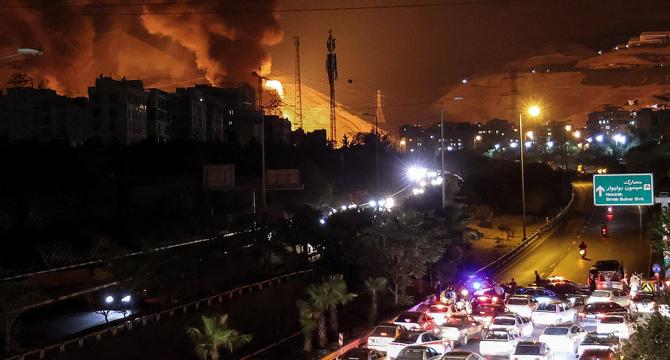Bloomberg Quint
1M
275

Image Credit: Bloomberg Quint
Oil Extends Rally As Israel-Iran Conflict Stokes Supply Concerns
- Oil prices surged as Israel and Iran engaged in attacks over the weekend, raising concerns about supply disruptions from a region that produces a third of the world's crude.
- Brent crude rose by 5.5% initially, then settled below $76 per barrel, while West Texas Intermediate hovered around $74.
- Israel's attack on Iran's South Pars gas field led to the closure of a production platform after previous strikes on Iran's nuclear sites.
- The tension between Israel and Iran has caused oil prices to spike, with markets reacting and investors turning to safe-haven assets like gold.
- Concerns mount over the potential blocking of the Strait of Hormuz as a significant route for oil shipments, with fears of price escalation if disruption occurs.
- Unrest in the Middle East, particularly at the Strait of Hormuz, remains a focal point for the oil market, with worries of supply disruptions and price volatility.
- Although Trump suggests a possible agreement between Israel and Iran, uncertainties persist amidst ongoing conflicts and potential implications on oil markets.
- Despite the confrontation, Iran's oil export infrastructure remains intact, but oil prices have regained lost ground due to various geopolitical factors.
- Market indicators reflect concerns regarding immediate supply risks and the likelihood of an extended conflict in the Middle East.
- Prices of oil have seen significant gains, with Brent for August rising 2.0% to $75.68 a barrel and WTI for July climbing 2.0% to $74.42 a barrel.
Read Full Article
16 Likes
For uninterrupted reading, download the app